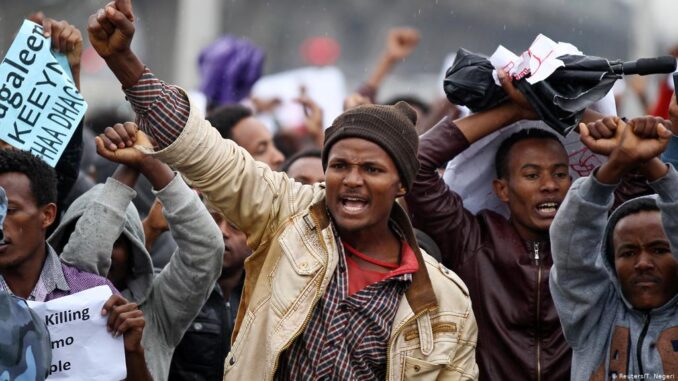
A new source of violence in Ethiopia, already destabilized by the war in Tigray and inter-communal clashes in several provinces. This time, members of the two largest peoples in the Ethiopian federation who are clashing more and more violently: the Amharas and the Oromos. For several months, an Oromo guerrilla group has been carrying out deadly attacks, particularly against the Amharas.
Despite the state of emergency declared on Sunday, April 18, in the southern part of the region, Amhara nationalist demonstrations took place on Tuesday, April 20, raising the tension a little more. Thousands of people marched under the three-colored flag of the former Ethiopia throughout Amhara. With their fists raised, the demonstrators denounced what they called the “genocide” of the Amharas.
In recent weeks, clashes with the Oromos have increased in places where the two peoples live side by side. In the town of Ataye on Friday, April 16, Amhara security forces shot and killed an Oromo trader in the “special zone,” a district of Amhara where a majority of Oromos live, after which punitive expeditions by locals killed 18 people. Last month, dozens of Oromo farmers in the Special Zone were killed, some in lynch mobs.
Regional authorities and the federal government say they are conducting operations against an Oromo guerrilla movement. But the more nationalistic Amhara politicians accuse Prime Minister Abiy Ahmed, who is himself of Oromo origin and relies on Oromo cadres, of encouraging these attacks. Oromo nationalists, on the other hand, accuse the Amharas, now supported by the Eritrean army, of seeking to seize power by force and reduce Oromo influence in the federation through violence.
